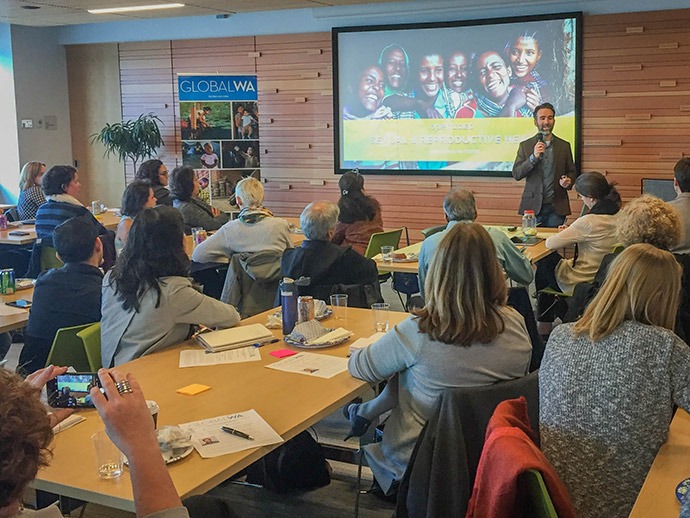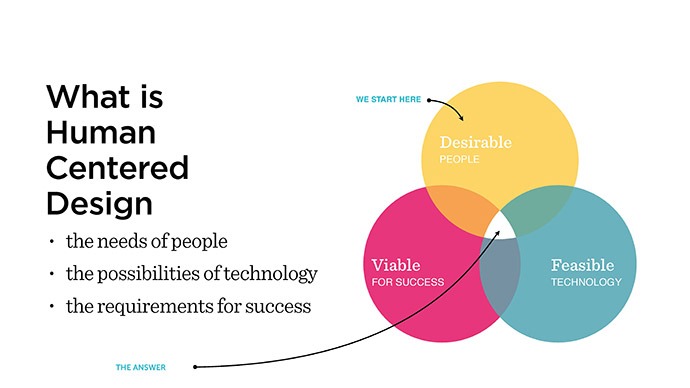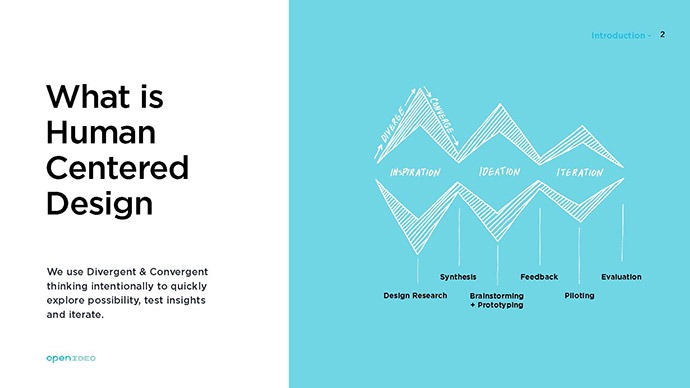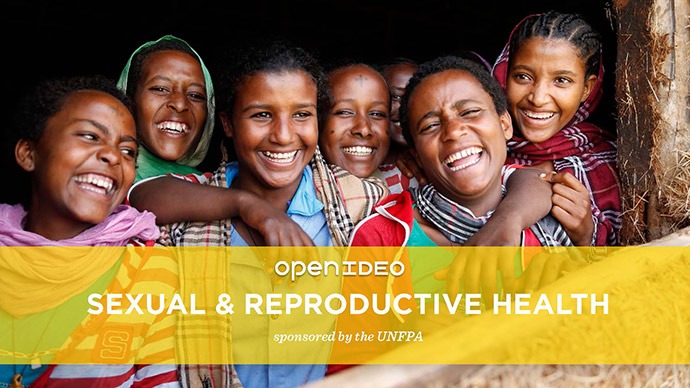By Ulrike Hoessle

What if you could engage people around the globe to generate ideas and solutions for the challenges you are trying to solve?
As Managing Director of OpenIDEO—IDEO’s open innovation practice— Jason Rissman is collaborating with a worldwide community to tackle societal and environmental challenges. In a workshop at Global Washington on April 2, Jason presented IDEO’s human-centered design methodology.
As GlobalWA Executive Director Kristen Dailey emphasized in her remarks, the Pacific Northwest is a hub for innovation, and human-centered design provides a useful framework to brainstorm and test ideas to make the world a better place.
What is IDEO?
IDEO is a design and innovation firm started by David Kelley 40 years ago with an initial focus on product design – such as Apple’s first mouse – and it has since expanded to take on additional creative challenges -everything from healthcare, to food systems, to education- all using human-centered design. IDEO works in collaborative, multi-disciplinary teams for designing, prototyping, and testing ideas, and constantly adjusting and improving the product or solution as it goes along.
What is Human-centered Design?

Innovation must be desirable, viable, and feasible: People need the product, technology makes the product possible, and ultimately the product must be successful.
According to Rissman, human-centered design “begins with empathy.” As such, the design process emphasizes deep exploration of the needs, behaviors, and circumstances of the people who are intended to benefit from the product.
Throughout the process, divergent phases – going broad and really thinking about the possibilities – followed by convergent phases – focusing and narrowing the scope – help guide designers from inspiration, to ideation, and then to prototype iteration in order to test multiple ideas.

The following examples were generated with IDEO’s human-centered design approach:
- Redesigning the ballot boxes for Los Angeles county to make voting more accessible for the elections of 2020.
- Designing an affordable private school system for the middle class in Peru, from the curriculum, online interface, teacher training program, and the actual buildings.
What is OpenIDEO?
OpenIDEO is IDEO’s open innovation practice and was started eight years ago with the aim to include more people around the world to address the toughest social and environmental challenges. To generate innovative ideas, some of the OpenIDEO’s challenges are addressed to a worldwide audience, others are collaborative networks, e.g. where funders and non-profits are invited to find new ways for coordinating their actions.
Here are some of previous OpenIDEO’s challenges:
- Reducing food waste by transforming the relationship with food
- Improving education systems in emergency situations (with the Australian government)
- Providing sexual reproductive health services in emergency settings (with UNFPA)
- Reimagining end-of life experiences
- “We love reading,” a literacy program for refugees.

An In-Depth Example of an OpenIDEO Challenge: How to Reduce Plastic Waste?
During this challenge, OpenIDEO focused on three aspects of plastic waste: single use containers, bottle caps, and straws or lids. One million dollars in funding was available for this challenge. It generated 600 ideas overall, from which 100 ideas made it into prototypes, and 16 winners were chosen by experts and judges from business and academia. Sixty-five events in 22 countries accompanied the challenge, from the launch with Prince Charles to a community plastic walk in Nairobi.
Here are four of the winners of the OpenIDEO plastic waste challenge:
- Edible and biodegradable containers from seaweed (Evoware, Indonesia)
- Edible straws (Loliware, N.Y.)
- One piece disposable paper cups with an attached origami lid (N.Y.)
- Biodegradable straws from the nsheke grass (Tanzania).
Lesson Learned from the Open Challenges
OpenIDEO gained three basic insights from its open challenges:
- Powerful questions align action: As many people are confronted for example with the damaging effect of plastic waste, it had a multiplier effect as demonstrated by 65 events around the world.
- Diversity drives divergent thinking: With its worldwide open challenges, OpenIDEO generated more ideas with broader perspective.
- Inclusion and openness accelerate itineration: As experienced designers are partnered with people who have domain-specific knowledge, they can develop prototypes more quickly.
New and upcoming OpenIDEO innovation challenges
OpenIDEO has a few ongoing challenges, one of which is Design with Nike Grind (deadline May 1, 2018), where participants may submit recycling ideas for Nike’s material. Another upcoming OpenIDEO challenge that might interest Global Washington members is the second BridgeBuilder Challenge, which calls for ideas at the intersection of peace, prosperity, planet, funded by GHR Foundation.
Additional resources about human-centered design:
- ideou.com offers on-demand classes, multi-week online courses, and training videos (e.g. on effective brainstorming techniques)
- IDEO’s Design Kit provides free training materials.
- Tim Brown (2009): Change by Design: How Design Thinking Transforms Organizations and Inspires Innovation. HarperCollins Publishers.
- Tom and David Kelley (2013): Creative Confidence: Unleashing the Creative Potential Within Us All. Crown Business.
Ulrike Hoessle (WWS Worldwide) consults for non-profits on fundraising, organizational development, strategic planning and for companies on business & human rights. Previously, she worked for foundations and other non-profits on human rights, women’s rights and the environment in Africa and Latin America. She has a M.A in Cultural Anthropology and a Ph.D. in Political Science.